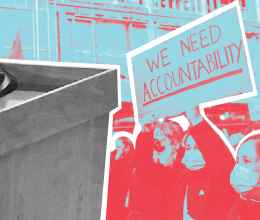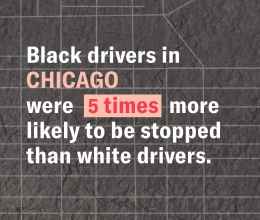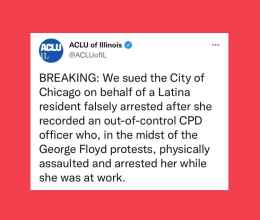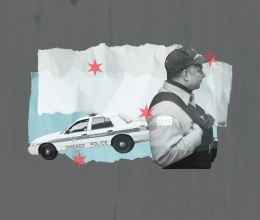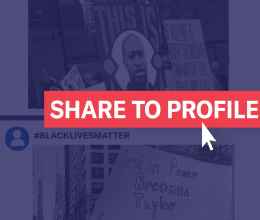
By Roxanne Smith, Communities United
Seventeen years ago, my son Seneca was shot six times by Chicago Police after being chased on foot. The police officers even fired upon and injured an innocent bystander after chasing Seneca into an occupied building.
In the wake of the shooting deaths of Adam Toledo and Anthony Alvarez, many in Chicago are calling on Mayor Lori Lightfoot to adopt a new foot chase policy. I have been waiting for nearly two decades for such a policy — as have other mothers who lost children to these chases. But mothers like myself, from many parts of the city, continue to wait.
In 2008, my younger son, who lives with Fragile X Syndrome, suffered a panic attack and needed medical attention while we were at church. As his mother, I wanted to get him medical help as soon as possible. So I called 911 seeking an ambulance with professionally-trained staff. Instead, six Chicago police officers arrived on the scene, threw my son to the ground, and handcuffed him.
They literally handcuffed my son for having a panic attack while Black. My son was terrified that the same thing that happened to Seneca would happen to him. To this day, he can recount every detail of this experience.
These are just some of the policing experiences that I have witnessed and lived through as a Black person in Chicago. They led me to get involved in efforts to bring real change to Chicago policing. I have been proud to stand with Communities United and other community organizations that filed lawsuits against the Chicago Police Department for using excessive force against people of color and people with disabilities. Communities United joined a coalition of community groups that won the right to go to court to enforce a federal consent decree that requires Chicago police to limit excessive force, getting the bias out of policing, and taking other steps to bring policing in line with the Constitution and common sense.
But the sad truth is that the City of Chicago has failed to meet community groups at the table and be a willing partner. In fact, the City has missed more than half the deadlines contained in the consent decree — deadlines the City signed onto. But what matters more, what is alarming, is that the City is failing to listen to suggestions for reform that come from community members with lived experience.
We cannot wait any longer. The time for change is now. And people across this City need this change now, as we suffer the repeated trauma from seeing Black and brown people being shot and killed by police, and seeing videos of police raids on the homes of Black and brown people, like what happened to Anjanette Young. I was horrified to see what happened to Ms. Young, the social worker who had police bust into her home and hold her naked and afraid in her own apartment.
This is not a matter of trying to find out what the problems are. We know what is wrong with policing in Chicago. But what’s missing is a real desire by the City to do something about it.
The leadership for ending biased and violent policing in Chicago must come from Mayor Lori Lightfoot. The Mayor needs to bring communities together with police for real solutions. Until then, there will be more Black and brown people shot and killed by police or suffering from police raids on their homes.
I still believe that the consent decree process will work to change policing in Chicago. But this change will not happen on its own. The Mayor must show that she is willing to change police culture and end the Code of Silence that keeps officers from being held accountable when they harm people. She must directly engage with the communities involved in the consent decree process. And she must make good on her promises to dig in and make policing better, not just for those in white communities but those who live on the South and the West sides.
As a beginning, the Mayor needs to listen to people just like me who have lived experiences, often bad experiences, with the police. Those of us who have survived police violence have something valuable to contribute. But instead, the Mayor too often seems to believe that the answer to any problem is to hold another news conference and declare that she will fix the problem. Meanwhile, the harm goes on in our neighborhoods.
That is why we need Mayor Lori Lightfoot to join in the effort to fix policing in Chicago. It is not too late for her and for the government to actually listen to us.
But it is getting later every day.
Roxanne Smith is a leader with Communities United.
